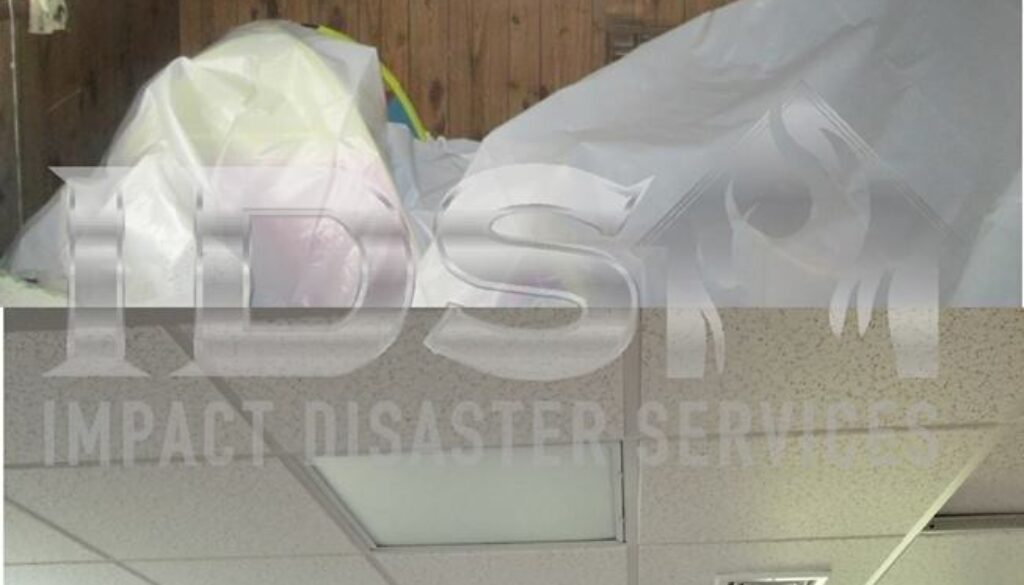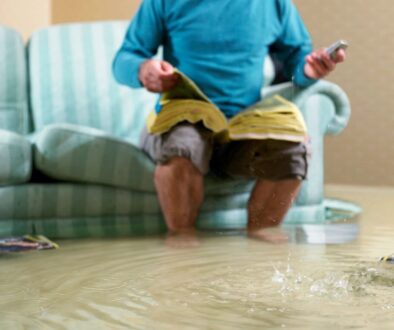Long-term Measures to Prevent Water Damage
Water damage in homes can be a big problem, but there are ways to prevent it. In this blog, we’ll talk about how to understand and prevent water damage over the long term. By taking some smart steps now, you can keep your home safe and dry.
Understanding Water Damage Threats
The first step to stopping water damage is to know where it can come from. Water damage can happen in lots of ways. Sometimes it’s because of heavy rain or flooding. Other times, it might be due to leaks in your house, like from old pipes or a roof that needs fixing. In winter, pipes can freeze and burst, which can cause a lot of water damage too.
It’s also important to know that water damage isn’t just about getting things wet. It can make your house weaker, lead to mold growth, and even ruin your furniture or other important things in your home. Knowing these risks can help you stay alert and ready to stop water damage before it starts.
Keeping an Eye on Potential Issues
To prevent water damage, you need to keep an eye on things around your house. Here are some things to watch:
- Check for Leaks: Regularly look around your home for any signs of leaks. This includes checking under sinks, around toilets, and near water heaters. If you see water or even just a wet spot, it might be a leak.
- Watch for Signs of Mold or Mildew: Mold or a musty smell can be a sign of hidden water damage.
- Notice Changes in Your Water Bill: If your water bill suddenly goes up, it could mean there’s a leak somewhere.
By paying attention to these signs, you can catch water damage early and stop it from getting worse.
Plumbing Maintenance: A Crucial Preventative Measure
Keeping your plumbing in good shape is a big part of stopping water damage in your home. Pipes can get old and start leaking without you even knowing it. It’s smart to have a plumber come and check your pipes every so often. They can fix little problems before they turn into big, wet messes. When it gets really cold, your pipes might freeze and then burst, causing lots of water to leak. To stop this, keep your house warm and wrap up any pipes that get too cold.
Another thing to remember is your outdoor hoses. Before winter comes, it’s important to drain them and turn off the water supply to them. This stops them from freezing and breaking. Good plumbing maintenance means you’re less likely to have surprise leaks and water problems in your house.
Roof and Gutter Care: Shielding Against Water Intrusion
Your roof and gutters play a huge part in keeping rainwater out of your house. If there are missing shingles or holes in your roof, water can sneak in and cause damage. It’s a great idea to have someone look at your roof now and then to make sure everything’s okay. This way, small fixes can be made before they turn into bigger issues.
Gutters are important too. They need to be clear of leaves and sticks that can block them. When your gutters are blocked, water can’t flow away from your house. Instead, it might overflow and start leaking into your house, which you definitely don’t want. So, keeping your roof in good shape and your gutters clean is really important for protecting your home from water getting in where it shouldn’t.
Landscaping Solutions: Redirecting Water Away from Structures
Landscaping can do more than just make your yard look nice. It can also help keep water away from your house. When you plant grass, flowers, or bushes, it’s good to think about where water goes when it rains. You want to make sure water flows away from your house, not towards it. This can stop water from getting into your basement or under your house.
Another cool thing you can do is use rain barrels or special gardens that catch rainwater. This helps because it stops too much water from going into the ground near your house. By thinking about how water moves around in your yard, you can stop it from causing problems in your home.
Appliance Checkups: Preventing Malfunctions Leading to Water Damage
Appliances in your house, like washing machines, dishwashers, and water heaters, can sometimes leak and cause water damage. That’s why it’s important to check them often. Look for any signs of leaks or weird noises. If something seems wrong, it might be time to fix it or get a new one.
Having a plumber or a repair person come and check your appliances every once in a while is a good idea. They can make sure everything is working right and not leaking. This can help stop a small leak from turning into a big, wet problem in your home.
Having a Water Damage Response Plan
It’s always good to have a plan just in case water damage happens in your home. Know where things like your water shut-off valve are. This way, if there’s a big leak, you can turn off the water quickly to stop more water from coming in.
It’s also smart to have a list of people to call, like a plumber or a water damage restoration company. Keep this list in a place where you can find it easily. And remember, if there’s a lot of water, it’s important to act fast. The sooner you start cleaning up and fixing things, the less damage there will be.



